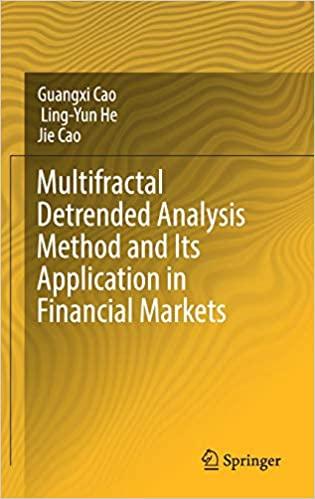Question
Question 1: A stock pays annual dividends. It just paid a dividend of $2. The growth rate in the dividend is 3% pa. You estimate
Question 1:
A stock pays annual dividends. It just paid a dividend of $2. The growth rate in the dividend is 3% pa. You estimate that the stock's required return is 9% pa. Both the discount rate and growth rate are given as effective annual rates.
Which of the following statements is NOT correct?
a.
The capital return of the stock is 3%
b.
The dividend at time t=3 will be $2.185
c.
The share price at time t=0 is $34.33
d.
Dividend growth rate is equal to the long term expected dividend yield.
e.
Total return of the stock is equal to the company's long term cost of equity.
Question 2:
You discover an investment costing $2,000 which has an expected total return of 13% pa, but a required return of only 9% pa. Of the 13% pa total expected return, the capital return is expected to be 7% pa. Assume that the required return of 9% remains constant, the dividends can only be re-invested at 9% pa and all returns are given as effective annual rates.
Which of the following statements is NOT correct?
a.
The expected dividend return is 6%
b.
When plotted on the Security Market Line, the investment would have a positive alpha.
c.
You would use a discount rate of 13% to find the NPV of this investment
d.
The investments price at time t=20 would be $7,739.37
e.
The investment is currently under-priced
Step by Step Solution
There are 3 Steps involved in it
Step: 1

Get Instant Access to Expert-Tailored Solutions
See step-by-step solutions with expert insights and AI powered tools for academic success
Step: 2

Step: 3

Ace Your Homework with AI
Get the answers you need in no time with our AI-driven, step-by-step assistance
Get Started


